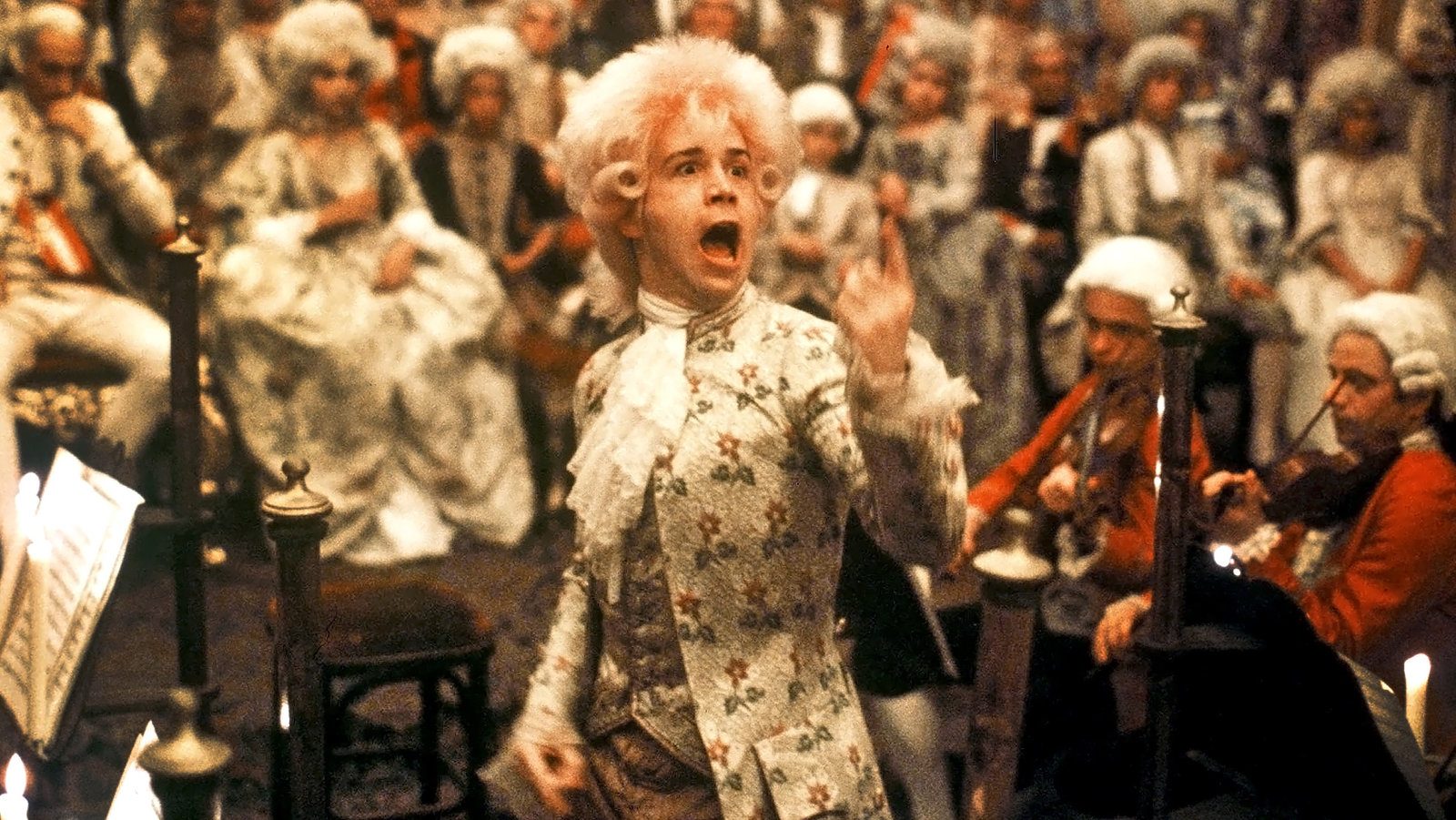Amadeus (1984)

Milos Forman’s “Amadeus” (1984), based on Peter Shaffer’s stage play, is a cinematic masterpiece that vividly brings to life the tumultuous relationship between two musical geniuses—Wolfgang Amadeus Mozart and Antonio Salieri. Set against the backdrop of 18th-century Vienna, the film explores themes of envy, rivalry, artistic brilliance, and the enduring legacy of genius.
The narrative unfolds through the perspective of Salieri (played by F. Murray Abraham), an accomplished court composer who becomes consumed by jealousy upon encountering the prodigious talent of Mozart (played by Tom Hulce). As Salieri recounts his life and career to a young priest, he reveals the depth of his admiration for Mozart’s music and the destructive envy that ultimately drives him to orchestrate Mozart’s downfall.
At its core, “Amadeus” is a compelling exploration of the complexities of artistic genius and the toll it exacts on both the creator and those around them. Mozart is portrayed not just as a musical prodigy but as a complex and flawed individual whose irreverent demeanor and unconventional behavior challenge the rigid social norms of his time. Tom Hulce delivers a memorable performance, capturing Mozart’s exuberance, vulnerability, and artistic brilliance with nuance and depth.

F. Murray Abraham’s portrayal of Salieri is equally captivating, depicting a man whose own talent and ambition are eclipsed by Mozart’s effortless genius. Salieri’s internal struggle between admiration for Mozart’s music and resentment towards his seemingly effortless talent drives the film’s narrative, offering a poignant exploration of the destructive power of envy and the pursuit of artistic recognition.
Thematically, “Amadeus” delves into the timeless themes of ambition, mediocrity versus genius, and the sacrifices required for artistic greatness. Salieri’s Faustian bargain with God, where he vows chastity and devotion in exchange for musical prowess, underscores the film’s exploration of the price of artistic success and the moral dilemmas faced by those who seek to attain it.

Milos Forman’s direction in “Amadeus” is marked by its sumptuous visuals, meticulous period detail, and evocative use of Mozart’s music to underscore the emotional depth of the narrative. The film’s soundtrack, featuring many of Mozart’s most beloved compositions, serves not only as a backdrop but as a character in its own right, illuminating the contrast between Mozart’s divine inspiration and Salieri’s calculated craftsmanship.
Moreover, “Amadeus” challenges viewers to contemplate the nature of genius and its impact on society. The film explores the tension between innovation and tradition, highlighting Mozart’s revolutionary approach to music composition and performance that forever changed the course of classical music history. It prompts reflection on the enduring legacy of artistic visionaries and the sacrifices they make to createenduring works of art.

In conclusion, “Amadeus” (1984) stands as a timeless exploration of the transformative power of music and the complexities of human ambition and creativity. Through its compelling narrative, rich characterizations, and thematic depth, the film offers a profound meditation on the nature of genius, the price of artistic greatness, and the enduring allure of Mozart’s music. Milos Forman’s masterful direction ensures that “Amadeus” resonates as both a cinematic achievement and a poignant reflection on the enduring legacy of one of history’s greatest composers.











